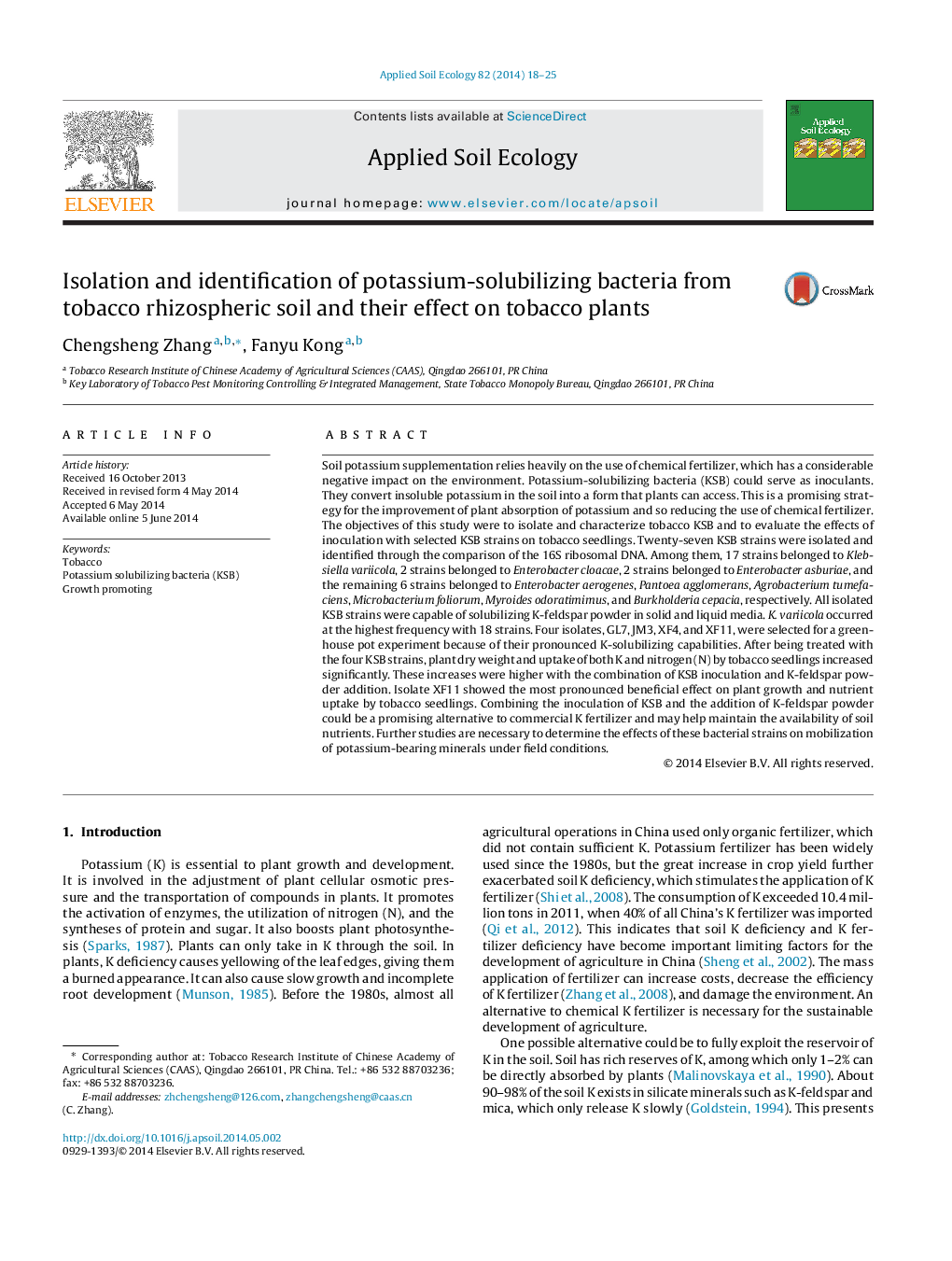| Article ID | Journal | Published Year | Pages | File Type |
|---|---|---|---|---|
| 4382146 | Applied Soil Ecology | 2014 | 8 Pages |
•Potassium solubilizing bacteria (KSB) were isolated from the tobacco rhizosphere.•17 of 27 isolates belonged to Klebsiella variicola.•Four selected isolates enhanced tobacco growth and nutrient uptake.•Combining the use of KSB and K-feldspar powder showed better results.
Soil potassium supplementation relies heavily on the use of chemical fertilizer, which has a considerable negative impact on the environment. Potassium-solubilizing bacteria (KSB) could serve as inoculants. They convert insoluble potassium in the soil into a form that plants can access. This is a promising strategy for the improvement of plant absorption of potassium and so reducing the use of chemical fertilizer. The objectives of this study were to isolate and characterize tobacco KSB and to evaluate the effects of inoculation with selected KSB strains on tobacco seedlings. Twenty-seven KSB strains were isolated and identified through the comparison of the 16S ribosomal DNA. Among them, 17 strains belonged to Klebsiella variicola, 2 strains belonged to Enterobacter cloacae, 2 strains belonged to Enterobacter asburiae, and the remaining 6 strains belonged to Enterobacter aerogenes, Pantoea agglomerans, Agrobacterium tumefaciens, Microbacterium foliorum, Myroides odoratimimus, and Burkholderia cepacia, respectively. All isolated KSB strains were capable of solubilizing K-feldspar powder in solid and liquid media. K. variicola occurred at the highest frequency with 18 strains. Four isolates, GL7, JM3, XF4, and XF11, were selected for a greenhouse pot experiment because of their pronounced K-solubilizing capabilities. After being treated with the four KSB strains, plant dry weight and uptake of both K and nitrogen (N) by tobacco seedlings increased significantly. These increases were higher with the combination of KSB inoculation and K-feldspar powder addition. Isolate XF11 showed the most pronounced beneficial effect on plant growth and nutrient uptake by tobacco seedlings. Combining the inoculation of KSB and the addition of K-feldspar powder could be a promising alternative to commercial K fertilizer and may help maintain the availability of soil nutrients. Further studies are necessary to determine the effects of these bacterial strains on mobilization of potassium-bearing minerals under field conditions.
